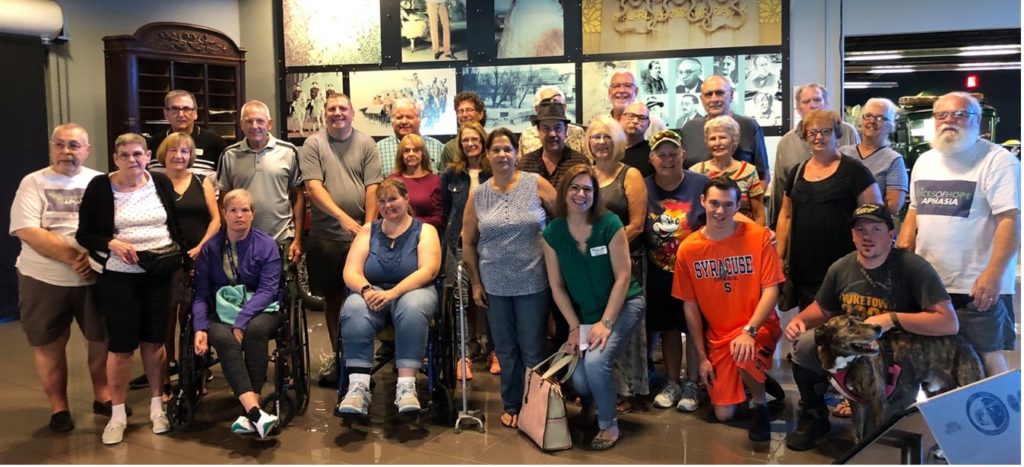by Lauren Hoadley: If you are a caregiver or individual living with aphasia, you may have heard of the Life Participation Approach to Aphasia (LPAA). Here at Voices of Hope for Aphasia, we firmly believe in following the LPAA. But what exactly is the LPAA? And how is it different from traditional approaches to aphasia treatment?
The Life Participation Approach to Aphasia is not a specific treatment technique. Rather, it is a philosophy and mindset of service delivery. While traditional therapy approaches focus on solely treating the underlying language impairment, the LPAA is a holistic model that considers the whole person. This includes the degree of language impairment, a person’s communicative environment (including facilitators and barriers), personal attitudes and identity, and participation in meaningful, personally-relevant life situations.
What is the primary goal of the LPAA?
The primary goal of the LPAA is enhanced life participation and improved quality of life. It is a client-centered approach, viewing the person with aphasia and their families as the experts in the treatment process. The LPAA can be implemented at all steps of a person’s recovery, from acute care, to rehabilitation, to returning to home and the community. At each stage, the person with aphasia and their families select relevant and meaningful goals to increase participation in daily activities. In the acute setting, this might mean participating in a discussion about discharge planning. At a later stage, this might mean returning to work or volunteering at a charity.
How can Voices of Hope for Aphasia help?
The LPAA can be implemented even after a person with aphasia is discharged from speech therapy. It is a philosophy that spans all stages of aphasia recovery – meaning that an individual with aphasia can participate in meaningful activities for the rest of their lives. This is where many community-based aphasia centers play a role, such as Voices of Hope for Aphasia.

Our goal at Voices of Hope for Aphasia is to end the isolation of aphasia by helping people re-engage in activities that make up a full and engaging life. If you are a caregiver or individual living with aphasia and want to engage in life again, expand your social opportunities, or join a supportive community, click here for a full list of programs we offer.

